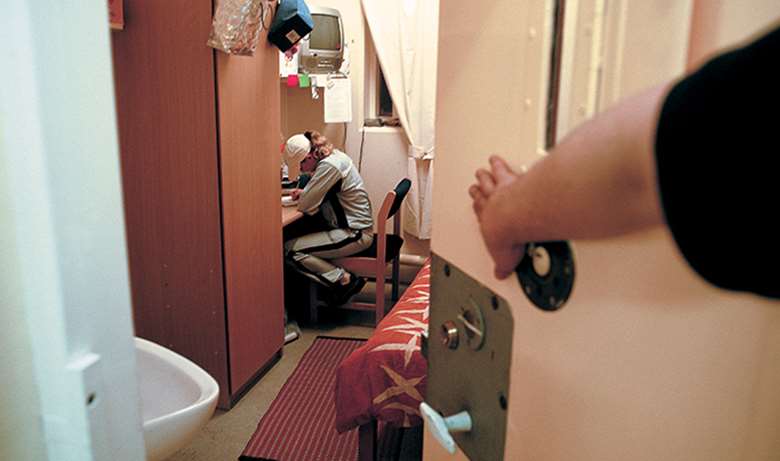Be bold and make youth custody education-focused
Howard Williamson
Tuesday, March 14, 2017
Justice Secretary Liz Truss has, in recent weeks, made a sweeping range of decisions in relation to the prison system.

First, she announced significant pay rises for prison service staff in South East England to stem the fall in recruitment and consequent staff shortages in the secure estate. She then withdrew responsibility from the Youth Justice Board (YJB) for child imprisonment and put that in the hands of a new body, the Youth Custody Service. It is disappointing she has not yet displayed the same level of commitment to the recommendations of the long-awaited Charlie Taylor report on the juvenile secure estate.
Taylor became convinced that the best strategy for transforming the lives of young offenders and releasing and realising their potential was to strengthen their educational experience during their time in custody. And that was education at many levels - a basic level that far too many incarcerated young people have not yet reached, a level of formal learning attainment commensurate with the norms for their age, and perhaps some provision and achievement in the realms of non-formal learning, such as through the Duke of Edinburgh's Award.
Nothing within this perspective is particularly new. My very first meeting as a YJB board member in 2001 was given over to the status and provision of education in young offender institutions. In 2010, the coalition government talked, literally, about Transforming Youth Custody through the establishment of a large-scale "secure college" - not a bad idea in terms of its core proposal, but subject to concern and criticism for other reasons. The proposal was abandoned. Now there is the Taylor report, some years in the making and, at least in theory, accepted by the government. But the practical response of the Ministry of Justice - to pilot a couple of "secure schools" - has been criticised as little more than a damp squib. This was a chance to change the culture of custody away from the brutality, confrontation, violence and harm that now afflicts the adult prison system and is creeping into what remains of its juvenile equivalents, as the numbers in the latter decline but become more of a "hard core" to deal with.
All of this is a salutary reminder of the life and death of Dave - a life that might have benefited from a strengthened educational offer during his first experiences of custody. In England and Wales, a record 119 people killed themselves in prison in 2016, an increase of 29 (32 per cent) on the previous year. That previous year, Dave was one of them, probably. Truss' commitment to "stabilise the estate" by tackling the drugs, drones and phones that undermine security, and boosting the frontline of prison officers, has come too late for him.
Above all, for Dave, it was the drugs. It is not clear whether Dave took his own life or inadvertently overdosed on a dreadful cocktail of prescribed and illegal substances. At the time of his death, nine different drugs were found in his body, only two of which had been prescribed by a doctor in prison as part of drug addiction therapy and to deal with drug withdrawal symptoms. At least five other substances were discovered in his cell. Dave was on the detox wing.
He had been returned to prison for breach of his licence conditions. He had been released two weeks earlier. Since the age of 12, he had been an intensive, habitual substance misuser. He served five custodial sentences in the juvenile secure estate before the age of 18. By the time of his death, he had 100 previous convictions. He was a persistent young offender, but, as his youth worker, I knew a bright but deeply troubled boy, a lonely kid with an iron shell. When he was not inside, Dave was rarely at school. His view was that he had fallen so far behind that it was not worth going. When he was in custody, very little educational progress was made. Indeed, he once wrote me a lucid, seven-page letter about his life, bemoaning the fact that no one had ever shown any positive interest in him.
Let us hope that Charlie Taylor, as the next chair of the YJB, can establish sufficient rapport with the director of the new Youth Custody Service to ensure the translation of his positive and purposeful vision for the education and development of incarcerated young offenders into effective and rehabilitative practice.
Howard Williamson is professor of European youth policy at the University of South Wales




